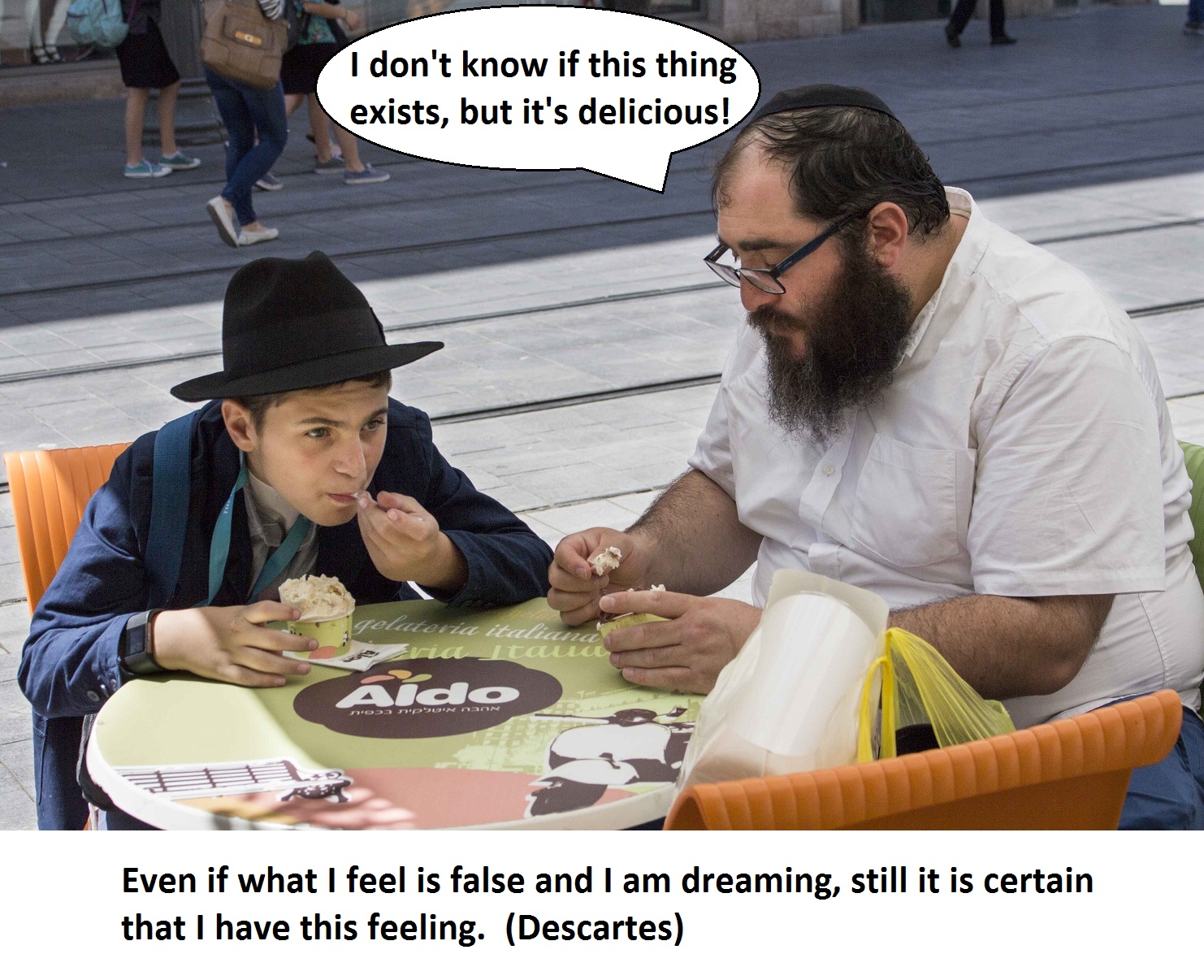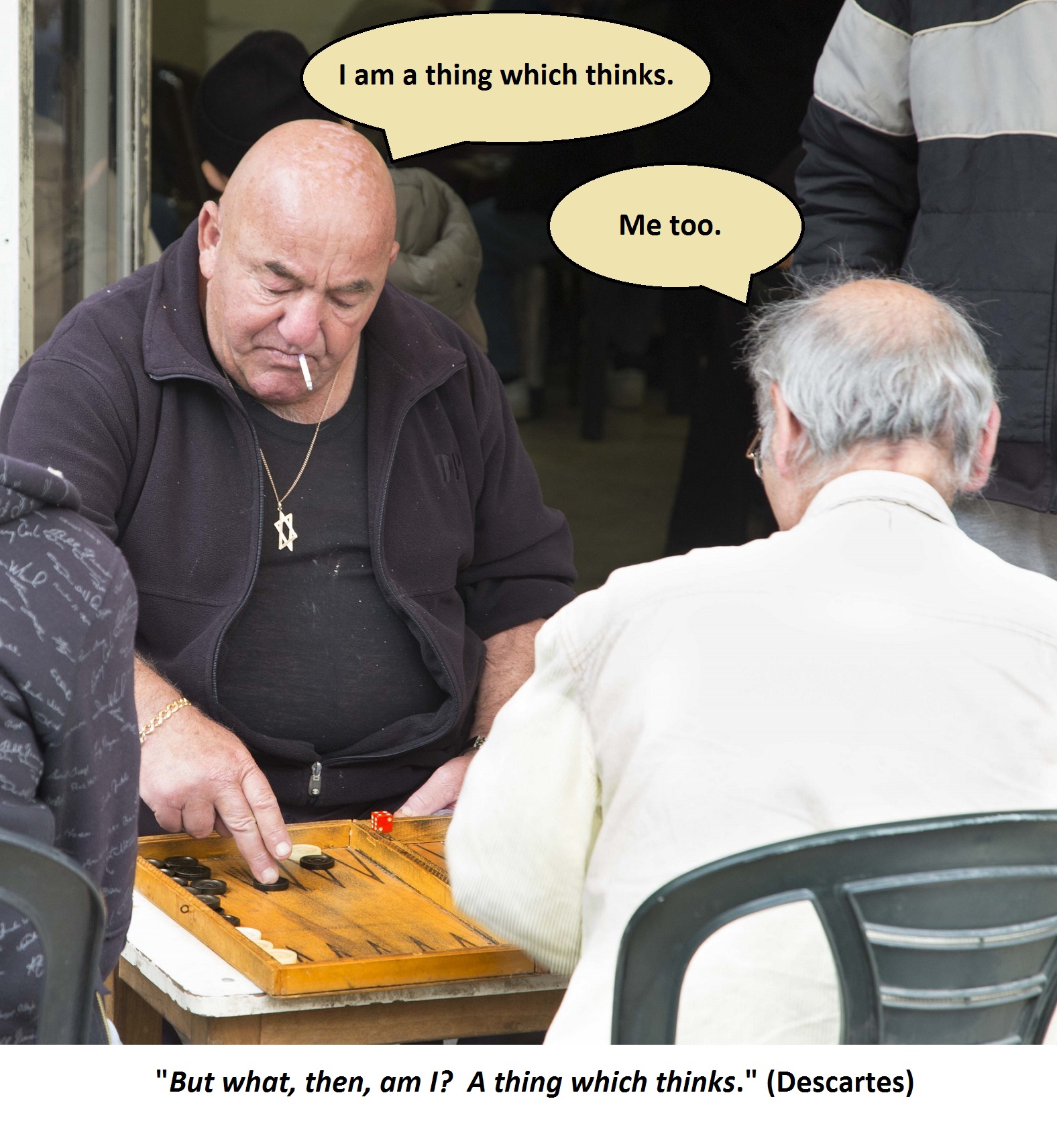|
I am a thing which thinks
 René Descartes (1596-1650), an important French philosopher, mathematician, and scientist, is considered the father of modern philosophy. Under his influence, philosophy became centered on epistemology (the study of knowledge) for three centuries. The question “What do I really know?” became a starting point for many philosophies after him. Especially influential were his idea that knowledge of the self is the foundation of all other knowledge, the search for the foundation of knowledge (foundationalism), and the mind-body problem in its modern form. He also produced important works in mathematics, geometry, and science. René Descartes (1596-1650), an important French philosopher, mathematician, and scientist, is considered the father of modern philosophy. Under his influence, philosophy became centered on epistemology (the study of knowledge) for three centuries. The question “What do I really know?” became a starting point for many philosophies after him. Especially influential were his idea that knowledge of the self is the foundation of all other knowledge, the search for the foundation of knowledge (foundationalism), and the mind-body problem in its modern form. He also produced important works in mathematics, geometry, and science.
As a young man Descartes studied law, then decided to become a professional military officer. While studying military engineering, he studied mathematics and science, and started thinking about a method for scientific knowledge. He then left the military, and continued studying in various places in Europe, meeting and corresponding with important scholars, and teaching. He published works in mathematics and philosophy, some of which were disliked by religious authorities. In 1649 he was invited by Queen Christina of Sweden, and started giving to her lessons in early morning, in cold weather. He soon contracted pneumonia and died.
The following passages are adapted from Descartes’ book Meditations on the First Philosophy (1641). In this book, composed of six “meditations” or chapters, he searches for a foundation of all knowledge. He starts by refusing to believe anything which is not completely certain, including his memory, his belief that the objects he sees around him really exist, and that he has a human body (he might be dreaming, or tricked by an evil deceiver). In the second meditation he finds that the only thing which he knows for sure is that he himself exists. But since his body is still in doubt, he concludes that he is a thinking being.
On the basis of this knowledge, Descartes builds, in later meditations, other pieces of knowledge: that God exists, that the material world outside him exists, and the nature of material objects and of the soul.
From MEDITATION 2
Yesterday’s meditations filled my mind with so many doubts that I can no longer forget them. And yet, I do not see how I can resolve them. […] I will continue by putting aside everything which I can doubt with the smallest doubt, as if it is absolutely false. And I will follow this road until I find something that is certain, or at least – if I can do nothing else – until I learn for certain that there is nothing in the world that is certain. […]
I am assuming, then, that all the things that I see are false. I am persuading myself that my memory is false, and that nothing which it presents to me has ever existed. I consider that I have no true perceptions. I imagine that body, figure, extension, movement, and place – all of these are only fictions of my mind. What, then, can I regard as true?
[…]
 But I myself, am I at least something? I have already denied that I have perceptions and body. Yet I hesitate, because what follows from that? Am I so dependent on body and perceptions that I cannot exist without them? But I was persuaded that there is nothing in the whole world, that no heaven exists, no earth, that there are no minds, nor any bodies – wasn’t I similarly persuaded that I do not exist? Not at all. Certainly I exist, since I persuaded myself of something. Perhaps there is a deceiver, very powerful and very cunning, who always uses his cleverness to deceive me – but then, without doubt I exist even if he deceives me. Let him deceive me as much as he wants, he can never make me nothing as long as I think that I am something. So, after reflecting well, and carefully examining everything, we must come to the definite conclusion that this statement – I am, I exist – is necessarily true each time I pronounce it, or mentally think it. But I myself, am I at least something? I have already denied that I have perceptions and body. Yet I hesitate, because what follows from that? Am I so dependent on body and perceptions that I cannot exist without them? But I was persuaded that there is nothing in the whole world, that no heaven exists, no earth, that there are no minds, nor any bodies – wasn’t I similarly persuaded that I do not exist? Not at all. Certainly I exist, since I persuaded myself of something. Perhaps there is a deceiver, very powerful and very cunning, who always uses his cleverness to deceive me – but then, without doubt I exist even if he deceives me. Let him deceive me as much as he wants, he can never make me nothing as long as I think that I am something. So, after reflecting well, and carefully examining everything, we must come to the definite conclusion that this statement – I am, I exist – is necessarily true each time I pronounce it, or mentally think it.
But I do not yet know enough what I am, I who am certain that I am.
[…]
I am, I exist – that is certain. But how often? Just when I think. Because it is possible that if I stop thinking entirely, I would stop existing. I do not admit now anything which is not necessarily true. Speaking precisely, I am not more than a thing which thinks. In other words, I am a mind, or a soul, or an understanding, or a reason – which are notions whose significance I did not previously know. I am, however, a real thing and I really exist. But what kind of thing? I have just given the answer: I am a thing which thinks.
[…]
 But what, then, am I? A thing which thinks. What is a thing which thinks? It is a thing which doubts, understands, conceives, affirms, denies, wills, refuses, and which also imagines and feels. But what, then, am I? A thing which thinks. What is a thing which thinks? It is a thing which doubts, understands, conceives, affirms, denies, wills, refuses, and which also imagines and feels.
[…]
Finally, I am the one who feels, in other words who perceives certain things, as if by the sense organs, because in fact I see light, I hear noise, I feel heat. But it will be said that these phenomena are false and that I am dreaming. Let it be so, still it is certain that it seems to me that I see light, it seems to me that I hear noise, and it seems to me that I feel heat. That cannot be false. Properly speaking, this, in me, is called feeling. And precisely speaking, it is a form of thinking.
|



